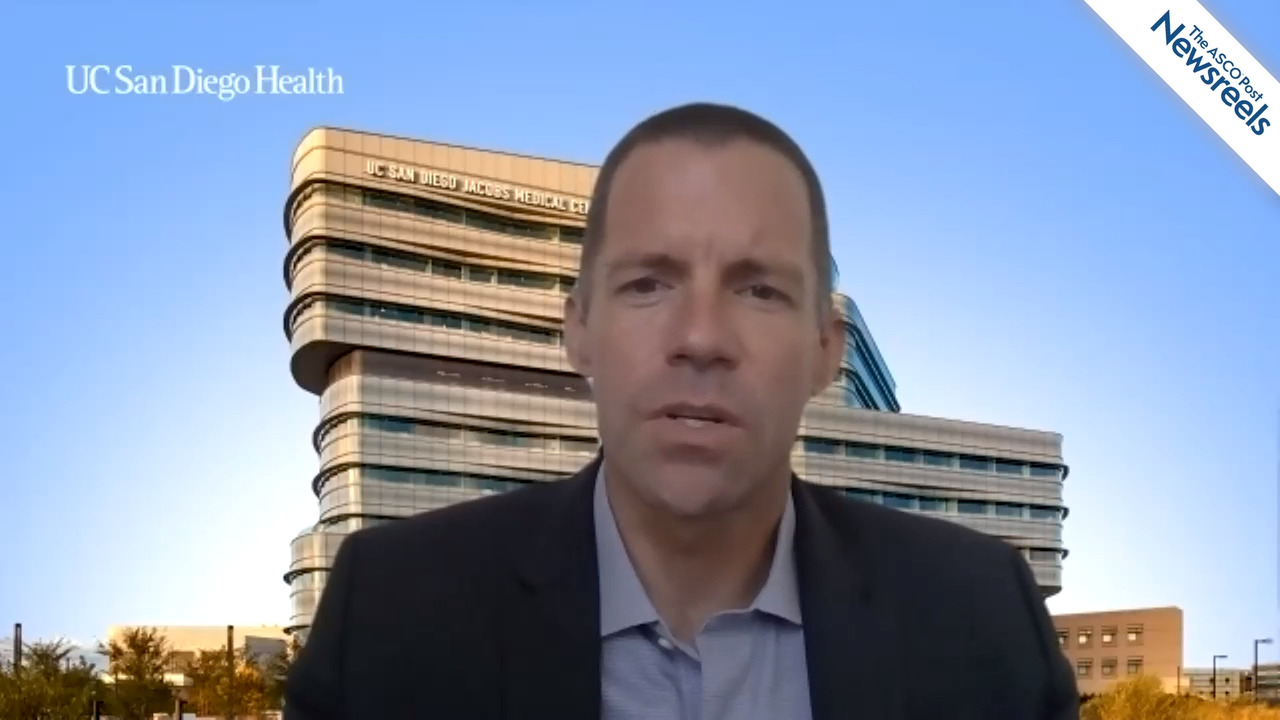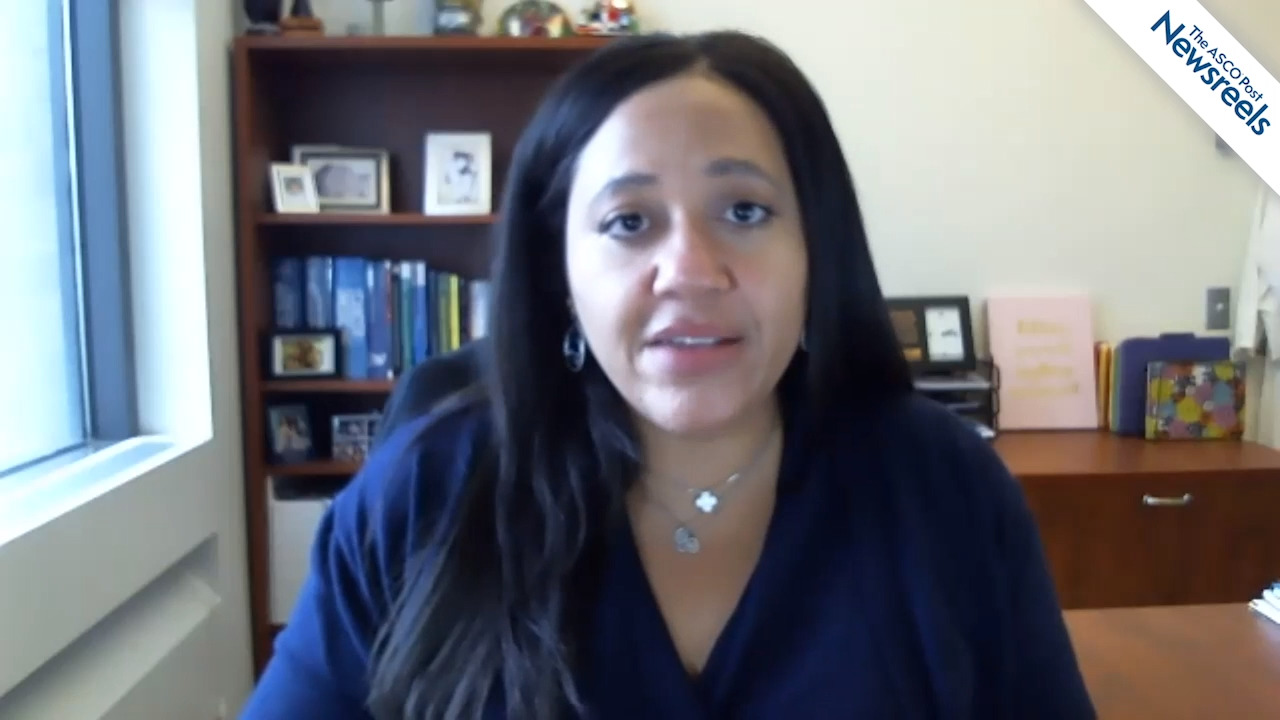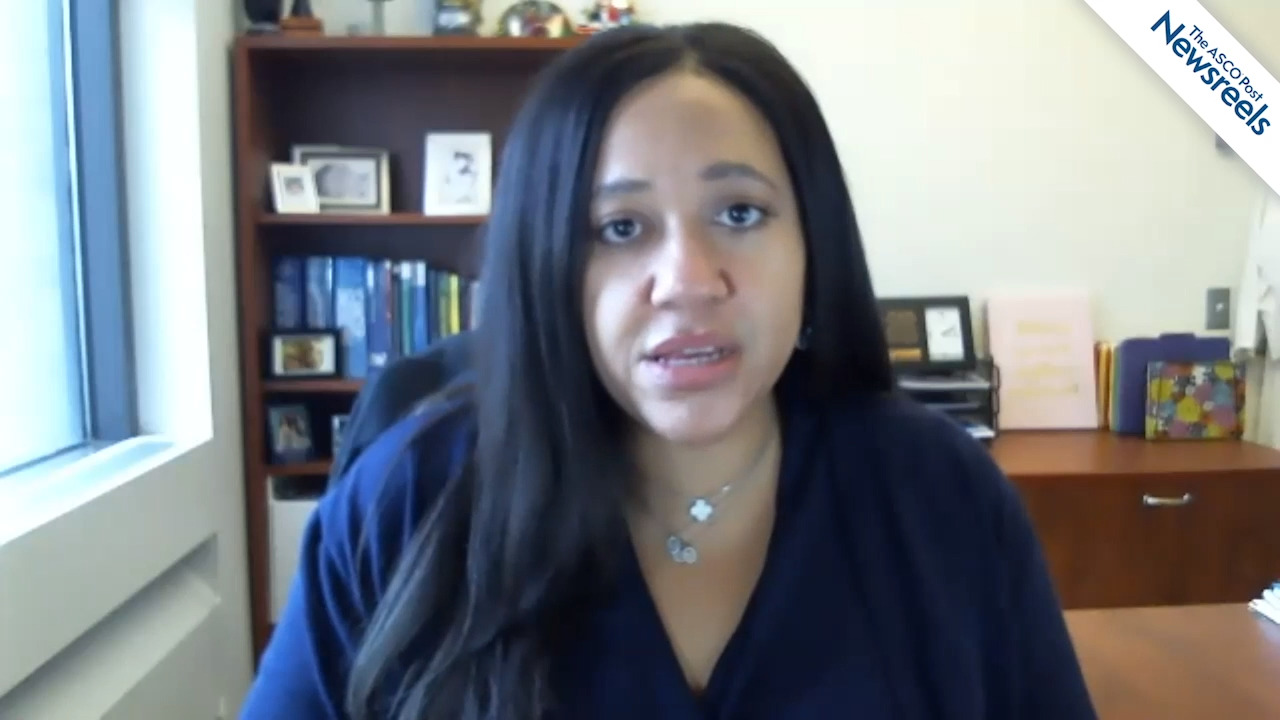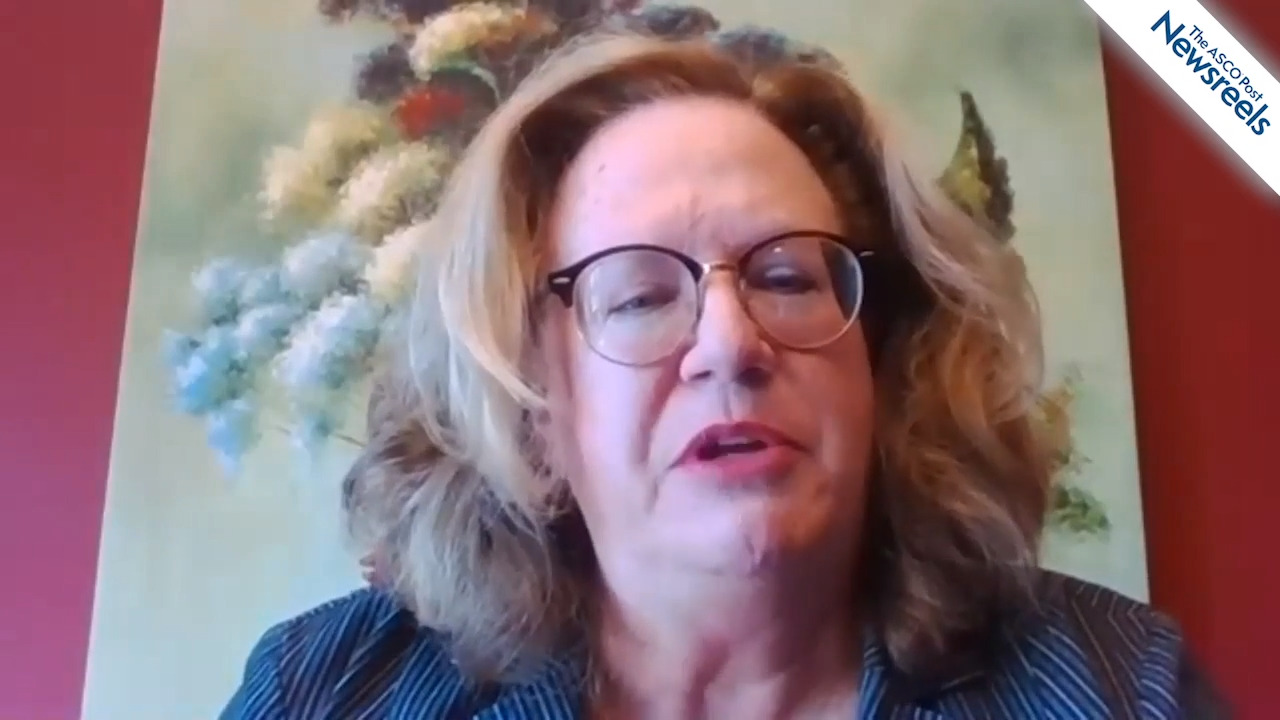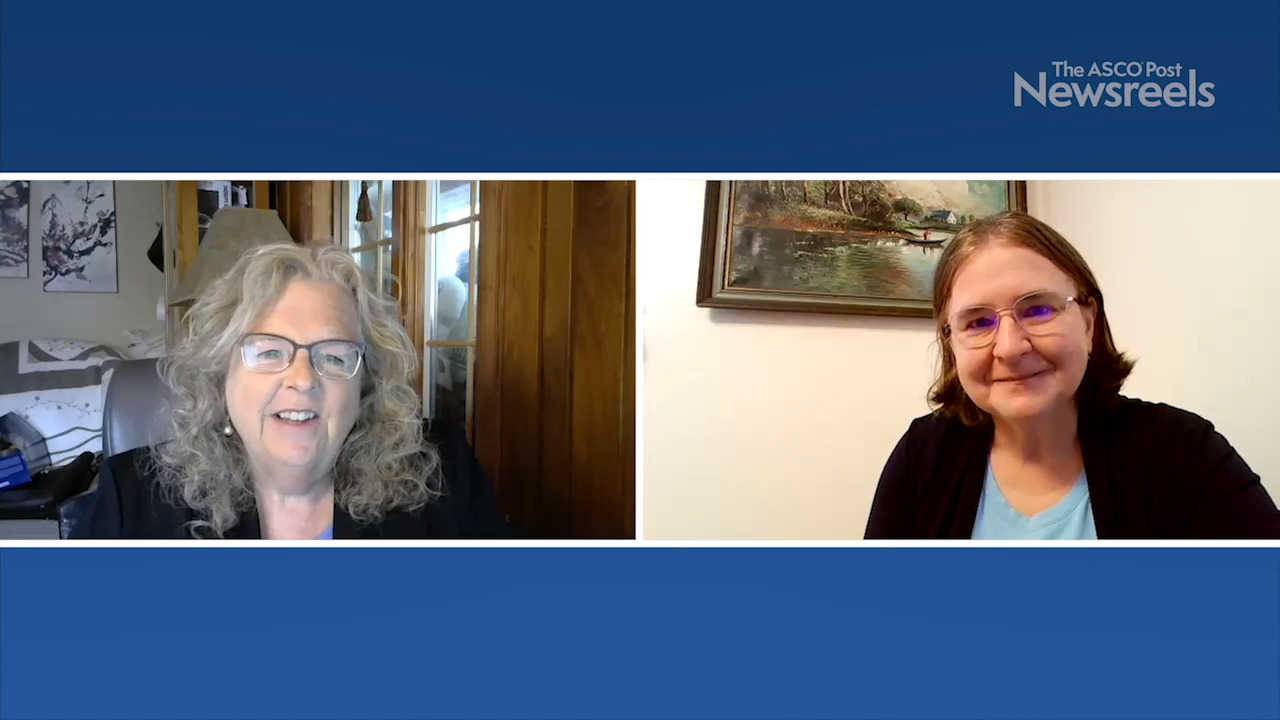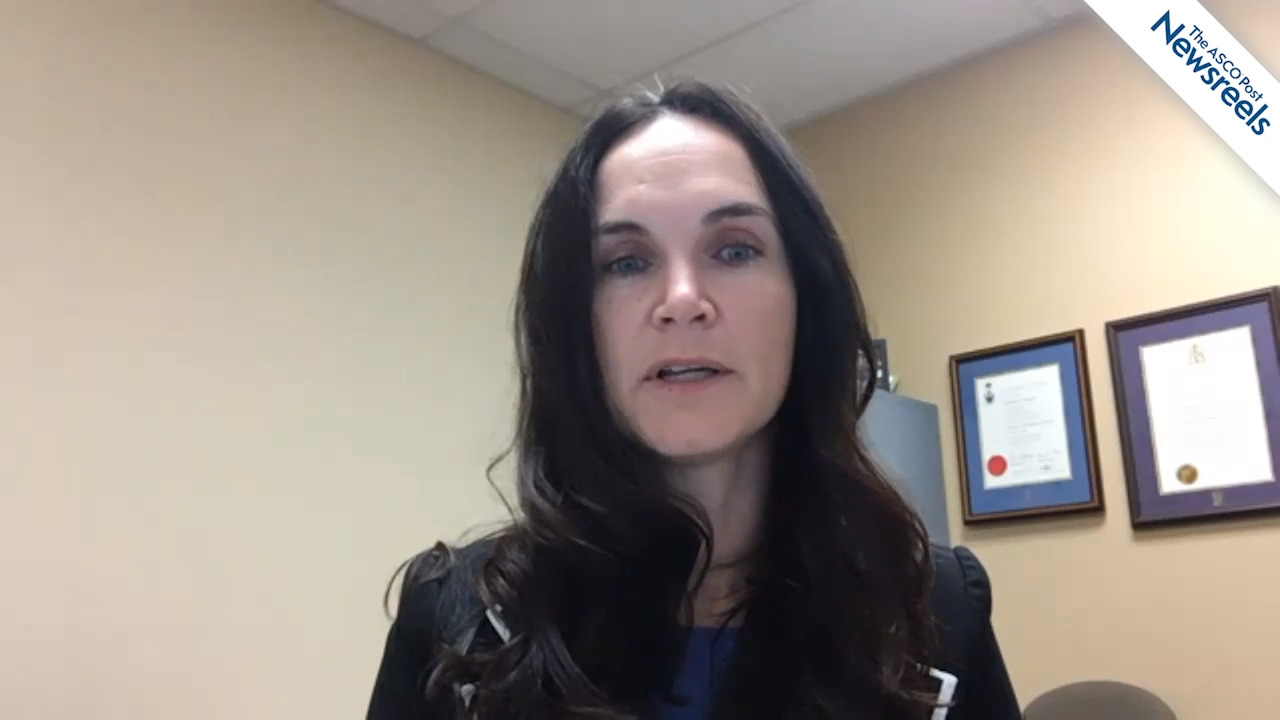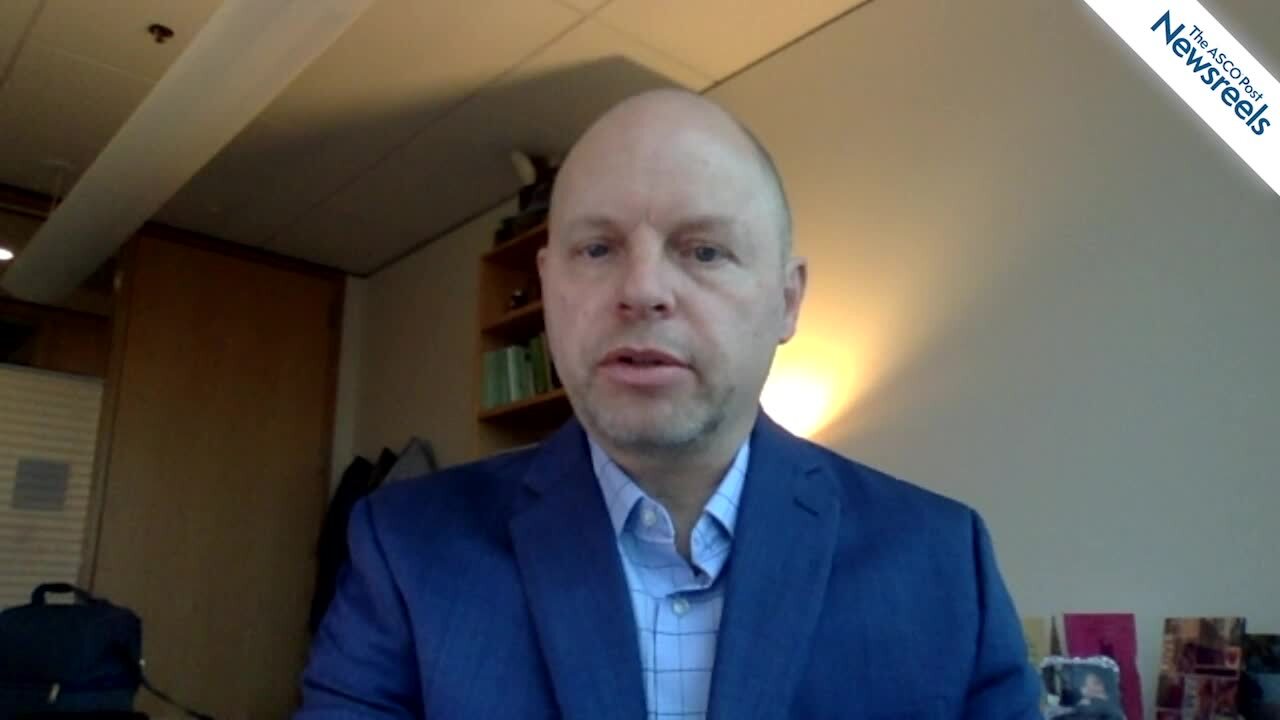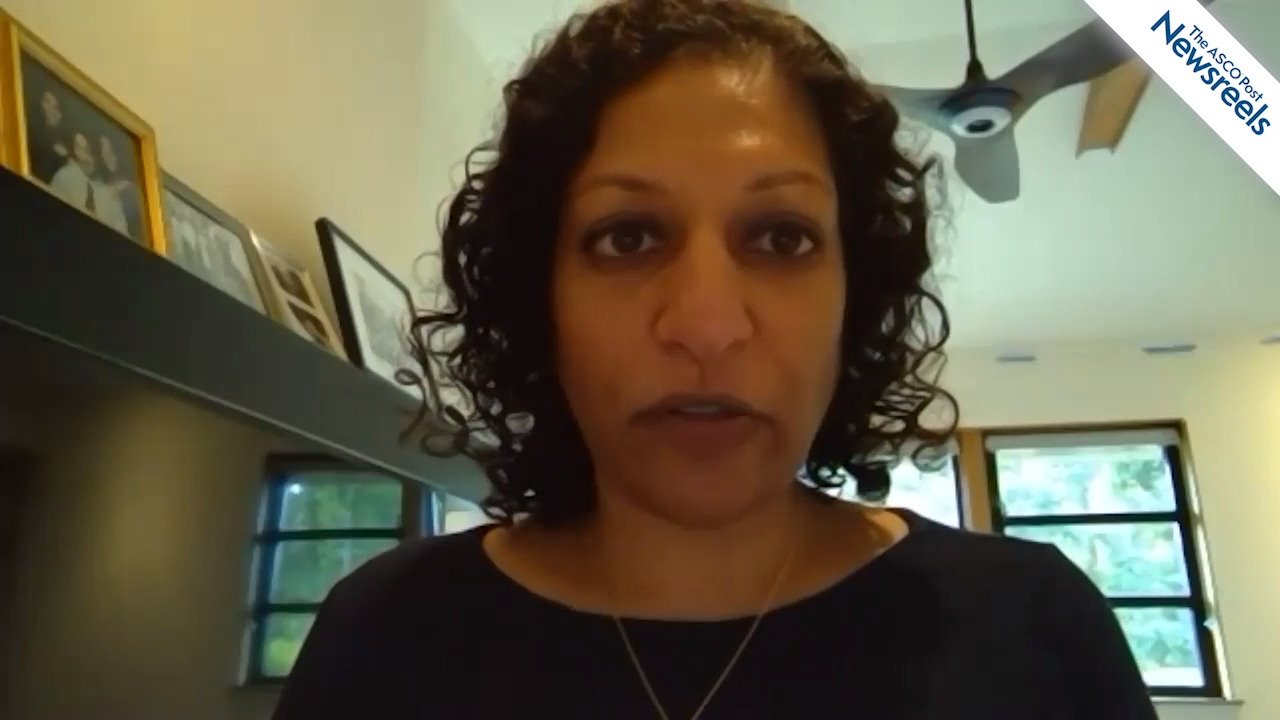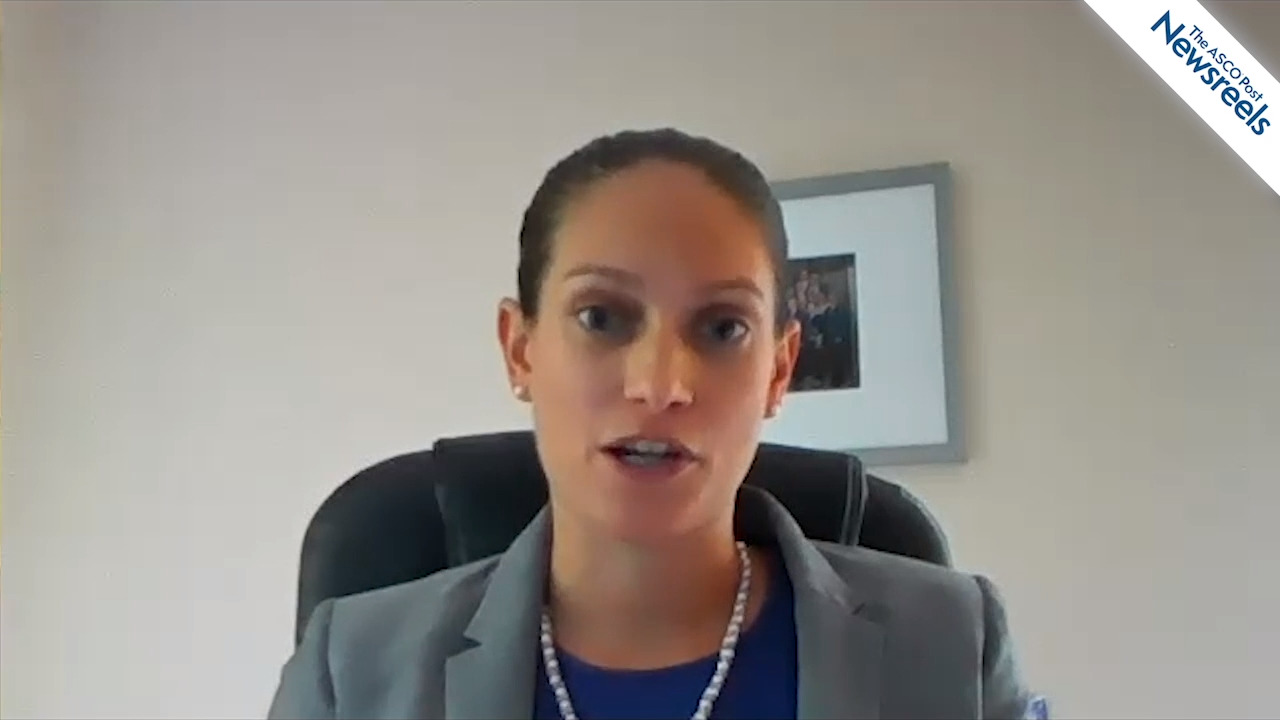2020 ASCO Quality Care Symposium
Expert Point of View: Therese Marie Mulvey, MD, FASCO
Therese Marie Mulvey, MD, FASCO, Director of Quality Safety and Value at the Massachusetts General Hospital North Shore Cancer Center, Boston, told The ASCO Post that this “provocative and elegant” st...
Ask Patients With Advanced Cancer About Fatigue: The Answer May Reveal Survival Odds
Fatigue could be an important baseline stratification factor for cancer treatment, according to data presented during the 2020 ASCO Quality Care Symposium.1 An analysis of four SWOG treatment trials h...
Expert Point of View: Sonali M. Smith, MD, FASCO
Sonali M. Smith, MD, FASCO, the Elwood V. Jensen Professor in Medicine, Interim Chief of Hematology/Oncology, and Director of the Lymphoma Program at the University of Chicago Medical Center, told The...
Reducing Emergency Department Visits: Better Patient Outreach May Improve Care, Treatment Costs
Identifying patients at risk for adverse outcomes and intervening with intensive clinical services may improve cancer care while saving billions of dollars in avoidable emergency department (ED) visit...
Expert Point of View: Reginald Tucker-Seeley, ScD
Formal discussant of these abstracts on financial toxicity, Reginald Tucker-Seeley, ScD, of USC Leonard Davis School of Gerontology, said the studies by Drs. Shankaran and Yabroff highlight how far th...
Medical Financial Hardship: Pervasive and Possibly Linked to Mortality Among Patients With Cancer
Reducing the financial impact of cancer diagnosis and treatment may save not only bank accounts but lives as well, according to recent data. Two separate survey studies presented during the 2020 ASCO ...
Expert Point of View: Monika K. Krzyzanowska, MD
Formal discussant of the abstract, Monika K. Krzyzanowska, MD, a medical oncologist at Princess Margaret Cancer Centre and Professor of Medicine at the University of Toronto, said this study extends t...
Reducing Symptomatic Toxicity Burden in Older Patients With Advanced Cancer Via Geriatric Assessment
As the number of older patients with cancer continues to rise, interventions that reduce the high rates of symptoms, toxicity, and distress in this population are urgently needed. Research presented d...
James D. Murphy, MD, on Opioid Use Among Patients With Cancer
James D. Murphy, MD, of the University of California, San Diego, discusses the possible reasons for a decline in long-term opioid use in patients with cancer, even as short-term use is rising, as well...
Cardinale B. Smith, MD, PhD, on Redesigning Care Coordination From the Patient’s Perspective
Cardinale B. Smith, MD, PhD, of the Icahn School of Medicine at Mount Sinai, discusses results of a pilot study suggesting dedicated lay staff members, who facilitated admissions and discharges for pa...
Cardinale B. Smith, MD, PhD, on Telehealth Disparities During the COVID-19 Pandemic
Cardinale B. Smith, MD, PhD, of the Icahn School of Medicine at Mount Sinai, discusses findings showing Black, Hispanic, and Asian patients with cancer used telehealth less often during the COVID-19 p...
Anne M. Barry-Weers, RN, on Decreasing Hospitalizations for Patients Receiving IV Chemotherapy
Anne M. Barry-Weers, RN, of Aurora Health Care/Aurora Cancer Care in Milwaukee, discusses strategies that helped patients with cancer to better manage their chemotherapy-related symptoms at home, thus...
Marie A. Flannery, PhD, and Eva Culakova, PhD, on Managing Symptoms in Older Adults With Advanced Cancer
Marie A. Flannery, PhD, and Eva Culakova, PhD, both of the University of Rochester, discuss a geriatric assessment tool that helped reduce symptomatic toxicities, as measured by Patient-Reported Outco...
Katherine Enright, MD, MPH, on Improving the Quality of Oral Cancer Drug Delivery
Katherine Enright, MD, MPH, of Trillium Health Partners in Ontario, discusses a model of quality improvement, which potentially could be adapted across health systems to improve oral systemic cancer c...
Joseph M. Unger, PhD, on Patient Interest in Clinical Trial Enrollment: A New Analysis
Joseph M. Unger, PhD, of Fred Hutchinson Cancer Research Center, discusses study results showing that more than half of all patients with cancer, regardless of race or ethnicity, agree to take part in...
Veena Shankaran, MD, on Colorectal Cancer: Cumulative Financial Hardship of Treatment
Veena Shankaran, MD, of the Seattle Cancer Care Alliance, discusses study findings from a national sample of patients with metastatic colorectal cancer who are on systemic therapy. A year into their t...
Melissa K. Accordino, MD, on Breast Cancer Care Delivery: Impact of the COVID-19 Pandemic
Melissa K. Accordino, MD, of Columbia University Medical Center, discusses findings showing nearly half of the patients with breast cancer treated at an academic center in New York City experienced a ...
CancerLinQ Data Reveal Black and Hispanic Patients With Cancer Face Greater Risk of COVID-19 Infection
Black and Hispanic patients with cancer were more likely to be infected with COVID-19 than White patients, based on the findings of a study of more than 477,000 patients to be presented by Potter et a...
Black Patients With Cancer May Be at Increased Risk for Hospitalization Related to COVID-19 Infection
A study of more than 500 patients with cancer infected with COVID-19 at a large cancer center in Boston found that Black patients with cancer and COVID-19 were twice as likely to be hospitalized due t...
Study Finds Black and Hispanic Patients With Cancer Used Telehealth Less Often Than White Patients During the COVID-19 Pandemic
During the peak of the COVID-19 pandemic, fewer Black and Hispanic patients with cancer used telehealth (including phone encounters and video visits) compared to White patients, according to findings ...
